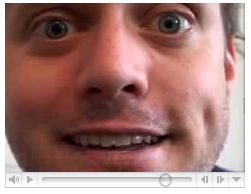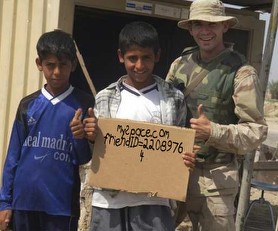Facebook – Now with the Mini-Feed of reality
The future is logged. And we’re seeing some of the future right now.
The students of the Facebook are currently working through the newfound reality of their complete Facebook activity being front-and-center to all their ‘friends’. The new mini-feed of their activity within Facebook (comments, notes, adding/removing of pictures, friends and groups) is now broadcast to all their friends’ dashboards automatically and without their consent. As of today, there is not an option to remove this functionality either – mini-feed items can only be deleted after the fact.
i love information. i love my friends. i love information about my friends; however, i don’t like everyone knowing information about what my friends and I do. good networking is like good flirting: leave something to the imagination!
There are two views of these mini-feeds:
1) A user looking at their own page sees a reflection of all their friends’ activity within the system for the last couple weeks – a ‘fortnight story’ of their friends’ activities/updates.
2) A user looking at another user’s page will see what that particular user has been up to the last couple weeks – a ‘fortnight story’ for someone else.
I think this move was inevitable and I applaud it. But I’ve got a longer view than someone using the Facebook today. I would be upset if my information was suddenly available like this. I am not sure why they didn’t have a smaller rollout with some feedback testing. I feel they’re going to get burned by public opinion in the days to come.
I agree, this new facebook is ridiculous! It makes me want to remove my account. I don’t want everyone knowing what I am doing at all times…it has become creepy. Please change it back!!
Normal is shifting.
The users of the Facebook were living in a dream world. Of course their activity was being logged – it’s how Facebook became Facebook. It’s just that the users of the site, until today, didn’t expect their information to be aggregated in quite this way – simply because it hadn’t happened before. And I feel sorry for those who have been ‘outed’ by this system and will continue to feel the brunt of these changes in the next few days as the changes propagate and begin to have a ripple effect on behavior within the system.
I don’t want everybody seeing who i friended, whose wall I wrote on, and when I change my relationship status everytime they sign on. This is a total violation of everyones [sic] privacy. We all hate it. If we want to see something about someone, we will go to their profiles our selves.
This information – this activity information – was already public. It was already part of a public discussion that the users were engaged in by being a member of the community. These students were spreading their political views, their personal habits, their class schedules and friendship networks for all to see (well, all within the Facebook). However, they had the luxury of assuming that most of the people looking at them would have to dig for that information themselves. Someone who wanted the aggregated view of a new aquaintance had some work to do. There was some social friction to knowing too much. And this was comforting – to a point. There was a barrier to entry that insulated the students from the reality.
This change brings them kicking and screaming into the light.
I love facebook, I really do, but this “new facebook” is not improved, it’s horrible! I dont want everyone to know what I am always doing! I wonder what we can do to have it changed?
What we’re seeing is the birth pains of a third generation of social networking.
The first generation was email/IM buddy lists. These allowed us to connect and keep track of our people across distance and time in a way that was more efficient and more seamless than ever before. We knew who was on our lists and we managed the connections. Visibility was limited but we were hooked.
The second generation is our current crop led by Friendster and now MySpace/LiveJournal/Facebook. These sites allow for users to keep track of one another and add a layer of visibility that was quite dramatic when first ‘discovered’. Users were very excited about sharing pictures and collecting as many friends as possible because all these were visible to those who were watching. It was like the mall and middle school all over again. To be seen was the thing.
The third generation will expose the history of this visibility. The full history of what you’ve done in the network. A record of how you’ve behaved in the past will be available in the future. This will (and should) affect your behavior and your friend lists and your decision about which pictures to post.
I really don’t care, i think its a bad move to make it default on with no opt out… …i’m just worried that i will be caught in lies… like saying i am busy working on something, add a friend, and have another friend know i was lying to them, because at 7:34pm i was on facebook…
And this is a good thing – as it mirrors the real world. You shouldn’t lie to your friends. As I’ve said before, the real world is a quaint place where actions matter and people remember. It’s also a place where this virtual overlay we’re playing in today will be taken for granted in only a few very short years. The decisions you make online today will, and should, matter tomorrow.
Students of the Facebook… Play hard, but play smart – and know that everyone is watching.
P.S. I’ll go out on a limb here and say that I expect Facebook to make these mini-feeds optional very shortly. The feedback has been very loud. That said, a dose of reality this big is understandably hard to take.
Update: Just over two days later and the first changes are live. They’ll survive just fine.
Tags: consolidation - facebook - identity - minifeed - normal - reality



